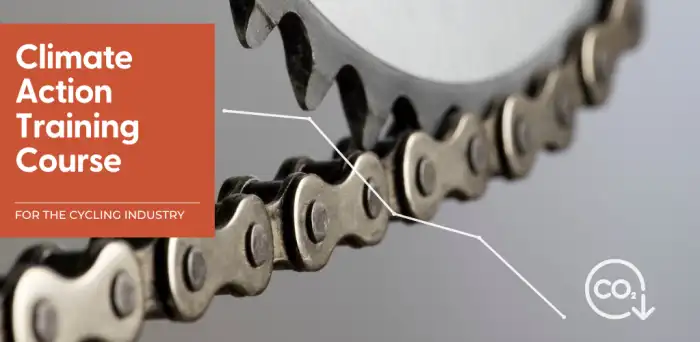
Shift recently partnered with Accell, Canyon, Quality Bicycle Products, Rose, Schindelhauer, Schwalbe, Scott, and Trek to develop a climate action course tailored to the cycling industry manufacturers and management to provide actionable climate knowledge and guidance.
Shift claims that by the end of this course, participants will be able to measure and report on a company’s greenhouse gas emissions, set reduction targets to lower emissions, and monitor progress. This course is open to the cycling industry in its entirety. Brands and companies are encouraged to use the training to advance climate action efforts and share their findings with others.
Key topics of the course:
- Be part of global decarbonization efforts,
- Measure your operational greenhouse gas emissions and set reduction targets.
- Identify solutions and strategies to reduce emissions.
- Minimize climate risks and meet your customers’ demands.
- Prepare for emerging legislation.
The vast majority of a cycling company or brand’s carbon or environmental footprint is generated in the supply chain, and up to 95% of carbon emissions occur during the extraction, sourcing, and production of raw bicycle materials and components manufacturing.
The course is focused on raising awareness about manufacturers’ crucial role in addressing the cycling industry’s climate impacts. Although cycling is considered an incredibly green method of transportation, the production and waste it generates are far from green.
This recent short documentary from the UBC Centre for Sport and Sustainability addresses the overall wastefulness of our sport.
Those interested in taking the Shift Cycling Culture course can find the training material and resources through the Shift website, and the lessons are offered in either a self-guided option for those who learn at their own pace, or you may choose to have a guided tutor walk you through the lessons.
This course is entirely free for those interested, and anyone in the cycling industry is encouraged to take these courses to educate themselves on the solutions to reducing environmental impact.
After completing all six modules and passing the final exam (score of 75 percent or greater), you’ll receive a certificate of completion. If you choose to take the self-taught courses, you can expect each module to take anywhere from one to three hours, and completing all six of the modules and the final exam will take about fourteen to twenty hours, including any option tasks. Tutor-guided courses should take roughly forty hours to complete, as the pacing is quite a bit slower to accommodate clarification throughout the course.
On November 13th and 14th, Shift will host two industry meetups so those interested can learn more about the Climate Action Training Course from the project partners and collaborators and how it can help their organization accelerate its climate journey.




